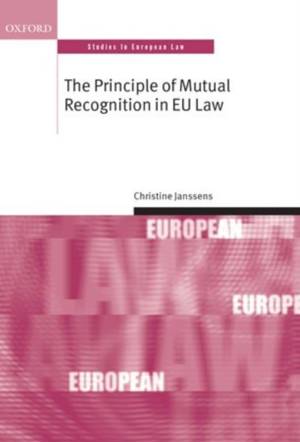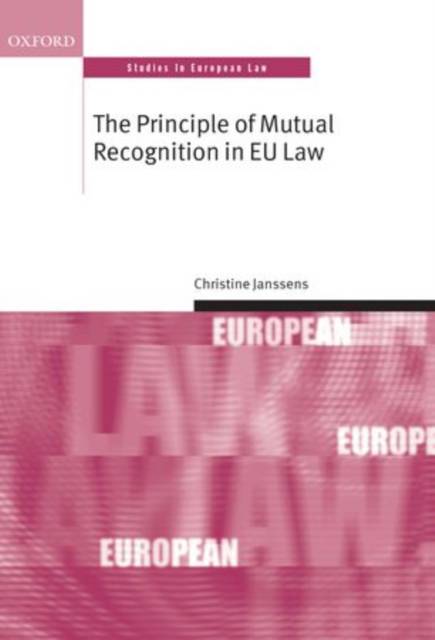
- Retrait gratuit dans votre magasin Club
- 7.000.000 titres dans notre catalogue
- Payer en toute sécurité
- Toujours un magasin près de chez vous
- Retrait gratuit dans votre magasin Club
- 7.000.000 titres dans notre catalogue
- Payer en toute sécurité
- Toujours un magasin près de chez vous
Description
Examining the principle of mutual recognition in the EU legal order, this book takes a cross-policy approach to focus on the principle in the internal market and in the criminal justice area. It asks whether the principle of mutual recognition, as developed in relation to the free movement provisions (internal market), can equally be applied in judicial cooperation in criminal matters (the area of freedom, security, and justice), and if such a cross-policy application is desirable. Divided into three parts, the book first looks at the way this principle functions in the internal market. Part II examines how the principle works in judicial cooperation in criminal matters, with the final part answering the book's central questions. In each part, further related questions are asked: What is the object of the principle of mutual recognition? Who are the main actors involved? How does the mechanism of mutual recognition operate (with an emphasis on the existing limits to mutual recognition)? How does mutual recognition relate to harmonization and to mutual trust? What is the relevance of equivalence requirements and the distribution of competence between the home (issuing) State and the host (executing) State? What are the main characteristics of the principle of mutual recognition? And is it a workable principle? Through an in-depth analysis of the relevant Treaty provisions, EU legislation, EU case law, and EU policy documents, the book comes to the conclusion that a cross-policy application of the principle of mutual recognition is both feasible and desirable.
Spécifications
Parties prenantes
- Auteur(s) :
- Editeur:
Contenu
- Nombre de pages :
- 416
- Langue:
- Anglais
- Collection :
Caractéristiques
- EAN:
- 9780199673032
- Date de parution :
- 30-12-13
- Format:
- Livre relié
- Format numérique:
- Genaaid
- Dimensions :
- 236 mm x 163 mm
- Poids :
- 776 g







